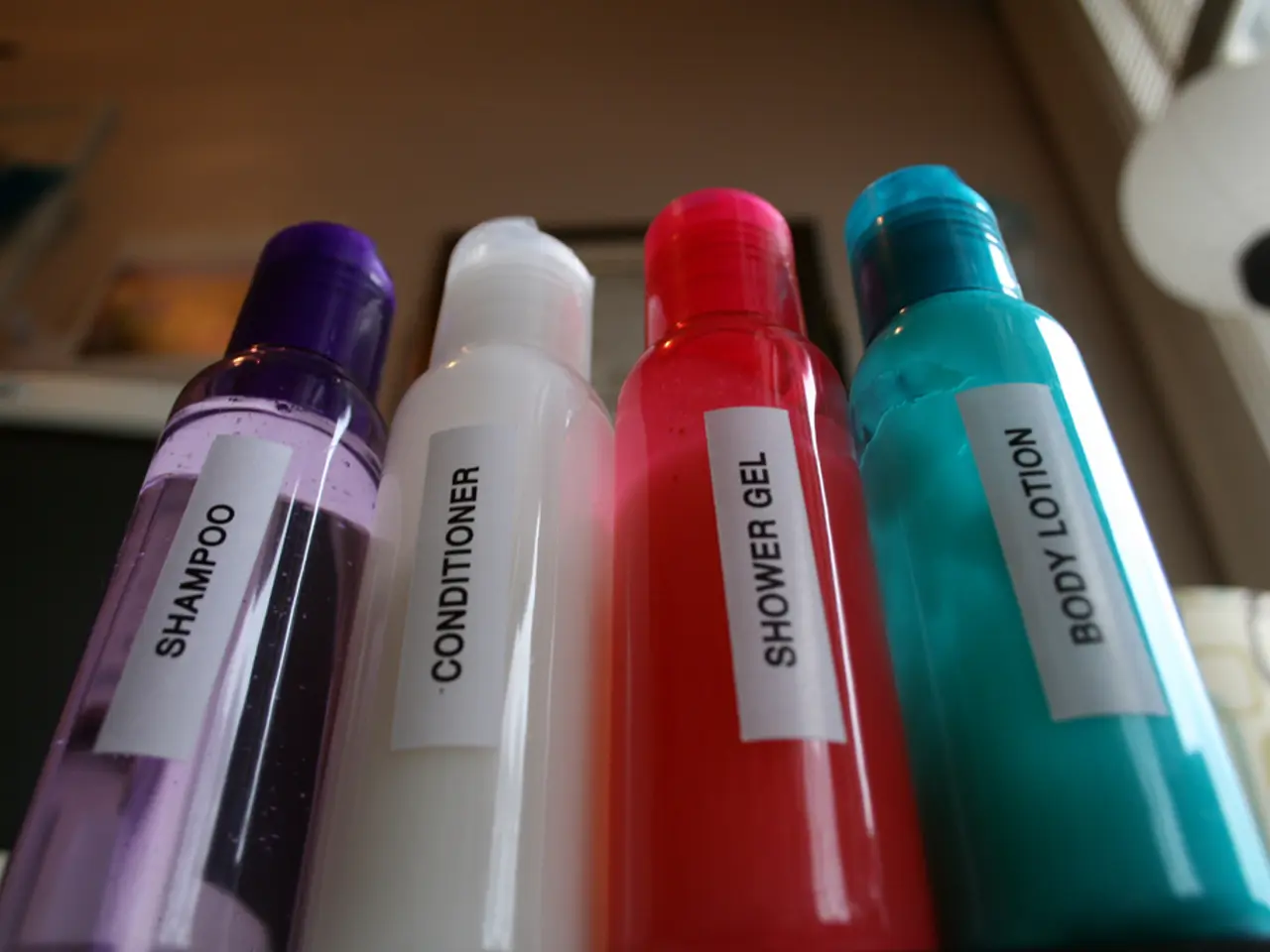Transformation of Habits and Personal Care for Enhanced Atopic Dermatitis Management
Managing Severe Atopic Dermatitis: The Role of Mindfulness and Self-Care
Living with severe atopic dermatitis, a common form of eczema, can significantly impact one's daily life. However, recent studies have shown that mindfulness and self-care practices can positively impact its management.
Research has found that stress is a known trigger for eczema flare-ups, and techniques that reduce mental distress and promote relaxation can lead to fewer symptoms and a better quality of life [1][2][5].
One effective approach is Mindfulness-Based Stress Reduction (MBSR) and Mindfulness-Based Therapies (MBT), which help patients cultivate acceptance, reduce mental distress, increase stress tolerance, and improve skin conditions by breaking the stress-skin inflammation cycle [1].
Compassion-Focused Therapy (CFT) is another beneficial technique, encouraging self-compassion and reducing shame and self-disgust related to skin conditions, thereby improving emotional resilience and skin health [1].
Relaxation practices such as meditation, deep breathing exercises, and yoga have also been shown to reduce stress and the frequency of scratching, leading to improved skin outcomes [3][5].
In clinical care, stress management is crucial. This includes tailoring skincare routines during stressful periods by using gentle, fragrance-free cleansers, barrier-repairing ingredients (like ceramides or colloidal oatmeal), and topical anti-inflammatories [2].
Support groups and cognitive-behavioral approaches can also improve coping skills and emotional support, contributing to better self-management of atopic dermatitis [3].
Lifestyle adjustments, such as regular exercise to improve circulation, protective measures against environmental triggers, and maintaining a consistent skincare regimen, further support skin health [4][5].
For those with furry pets, keeping dander levels in check by vacuuming frequently is important for managing eczema symptoms.
In addition to these practices, self-care for eczema management is about prioritizing physical and emotional well-being. This includes activities that are good for eczema skin, such as taking a short nap, a walk, or devoting five minutes to mindfulness every morning [6].
Staying hydrated, focusing on activities that don't make you sweat as much, wearing loose cotton clothes, exercising indoors, getting the sweat off your body fast, and considering swimming can help manage eczema during exercise [7].
An elimination diet, done under medical supervision, can help identify food triggers for eczema symptoms [8].
Environmental changes, such as putting an air purifier in the bedroom, switching cleaning products and laundry detergents, limiting time outside, and reducing sun exposure, can also help manage eczema symptoms [9].
Moisturizing before and after a workout is important for people with eczema, but using a lightweight product to avoid trapping extra heat on the skin is recommended [10].
Avoiding hot showers and skipping the sauna can help prevent eczema flare-ups after exercise [11].
In conclusion, mindfulness and self-care techniques that reduce stress and promote self-compassion work synergistically with dermatological treatments. These include mindfulness meditation, stress reduction programs, breathing exercises, psychotherapy addressing shame and self-disgust, skincare adjustments during stress, and supportive lifestyle changes. These approaches improve both psychological well-being and physical symptoms in severe atopic dermatitis patients [1][2][3][4][5].
[1] A 2023 study found that adults with eczema who did online mindfulness and self-compassion training for 13 weeks saw a decline in the severity of their symptoms and an overall improvement in their quality of life. [2] New prescription medications for atopic dermatitis treatment have made a significant difference for many people. [3] Therapy, support groups, and mindfulness practices can help manage the mental and emotional health impact of dealing with eczema. [4] Environmental changes, such as putting an air purifier in the bedroom, switching cleaning products and laundry detergents, limiting time outside, and reducing sun exposure, can help manage eczema symptoms. [5] Stress can show up on the skin of people with eczema, and mindfulness practices can help manage this. [6] Activities that are good for eczema skin include taking a short nap, a walk, or devoting five minutes to mindfulness every morning. [7] Staying hydrated, focusing on activities that don't make you sweat as much, wearing loose cotton clothes, exercising indoors, getting the sweat off your body fast, and considering swimming can help manage eczema during exercise. [8] An elimination diet can help identify food triggers for eczema symptoms, but it should be done under medical supervision. [9] Environmental changes, such as putting an air purifier in the bedroom, switching cleaning products and laundry detergents, limiting time outside, and reducing sun exposure, can help manage eczema symptoms. [10] Moisturizing before and after a workout is important for people with eczema, but using a lightweight product to avoid trapping extra heat on the skin is recommended. [11] Avoiding hot showers and skipping the sauna can help prevent eczema flare-ups after exercise.
- Implementing mindfulness and self-care practices, such as Mindfulness-Based Stress Reduction (MBSR), Mindfulness-Based Therapies (MBT), and Compassion-Focused Therapy (CFT), can help manage the symptoms of severe atopic dermatis, particularly by reducing stress and promoting relaxation [1-3].
- Regular exercise, while beneficial for overall health, may trigger eczema flare-ups. To minimize this risk, consider focusing on low-impact exercises indoors, staying hydrated, wearing loose cotton clothes, and moisturizing before and after workouts [6-7].
- An elimination diet, conducted under medical supervision, may help identify food triggers for eczema symptoms. Additionally, avoiding known environmental triggers, such as dust mites and pollen, can also help manage eczema [8-9].
- Living a healthy lifestyle that prioritizes quality skincare, such as using gentle, fragrance-free cleansers and barrier-repairing ingredients, adhering to a consistent skincare regimen, and making lifestyle adjustments like regular exercise and protective measures against environmental triggers, can further support skin health [2-4].
- Fashion choices can impact eczema management. For instance, choosing loose-fitting, breathable fabrics, like cotton, can help reduce irritation and prevent scratching. In cases of pet dander allergies, regular vacuuming may help keep dander levels in check [12].




